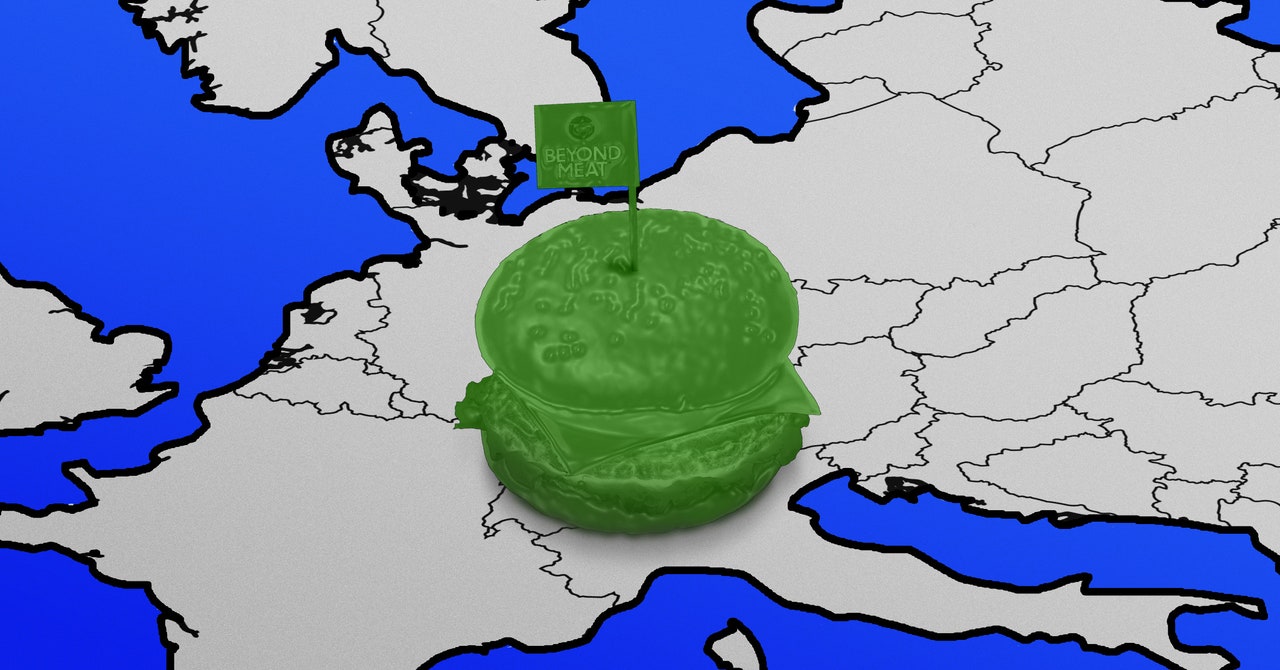In the UK, Beyond Meat is one of the most expensive plant-based alternatives on the shelves (listed at £4, or $5, for two patties), especially as many supermarkets offer vegan meat at lower prices. “There’s a huge price premium on Beyond compared to the rest of the market,” says Bryant. In the long term, Bryant expects the price of plant-based meat to drop and be more competitive with conventional meat. This can help tempt those who have never tried plant-based meat. (According to a 2023 study, more than 50 percent of US adults have never tried plant-based meat.)
Beyond, like its competitors, is also hostage to supermarket placement decisions. In the U.S., plant-based meat brands have been squeezed by stiff competition in the refrigerated aisles, DuBois says. “The meat case is one of the hardest places to compete,” he says, and retailers are wary of giving valuable shelf space to products that may not sell out quickly. He says plant-based brands are having an easier time in the frozen aisle, where competition is a little less intense.
Europe is one part of the world where things may be changing in favor of plant-based companies. One of Europe’s largest supermarket chains, Lidl, has committed to reporting how its protein sales are split between plant-based, eggs, fish, poultry and red and processed meat. It has also consistently reduced the prices of its vegetable proteins to match the equivalent animal proteins in its stores in Belgium, Germany, Austria, Denmark and Hungary. Jumbo Supermarkets, which operates in the Netherlands and Belgium, and Britain’s Co-operative Group have pledged to match the prices of their own-brand plant-based products with their meat equivalents.
“What we know about Europe is that there is demand,” says Carlot Lucas, head of industry at the Good Food Institute Europe, a non-profit organization that supports the alternative protein industry. “We’re seeing a lot of European startups really focusing on innovation to really expand the amount of products and the diversity of the market.”
It is perhaps no coincidence that meat consumption in some parts of Europe is beginning to decline. In 2023 people in Germany ate a record low average of 51.6 kilograms of meat per person, according to provisional data from the Federal Office for Agriculture and Food. In the Netherlands, about 43 percent of people’s protein intake is plant-based—much more than the U.S., where almost 70 percent of the protein in people’s diets comes from animals.
The shift to plant-based meats has been tainted by studies claiming that some vegan meat alternatives and substitutes are ultra-processed foods that can contain more sugar and salt than the products they replace, a claim that plant-based companies have refuted. Beyond has responded to concerns about the healthiness of plant-based meats by launching a new version of its burger with less salt and saturated fat. There is also a new range of sausages made from spinach, peppers, rice and lentils – a change to imitation meat.
But Bryant cautions that plant-based companies shouldn’t stray too far from reminding consumers of the reason many of these businesses started in the first place: the climate impact and animal welfare costs of conventional meat.
The industry needs to attract people to cheaper, tastier and healthier alternatives to animal protein, Bryant says. “But then there really needs to be, frankly, funding to put the messages in front of people that get people to change,” he says. “And a lot of it is the uncomfortable stuff about animal cruelty that people won’t like to see, but will change their behavior.”




